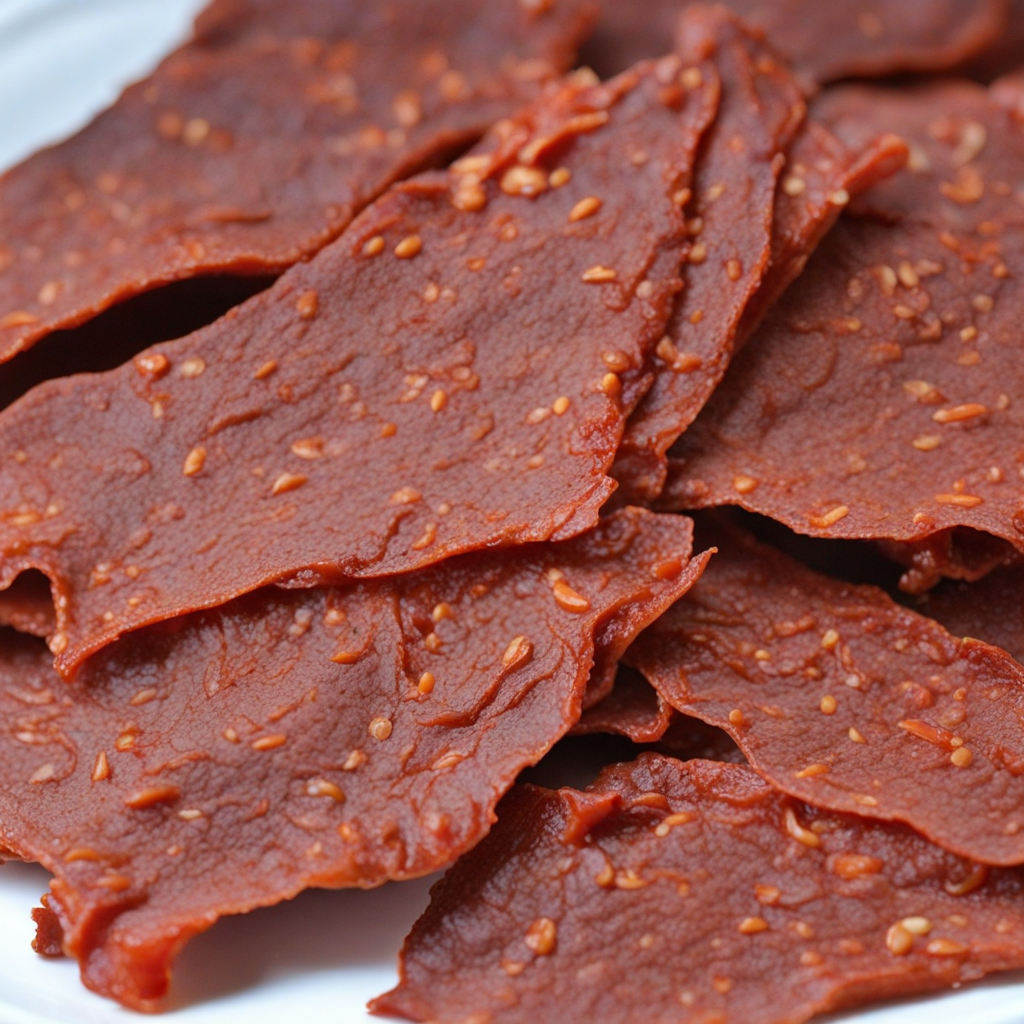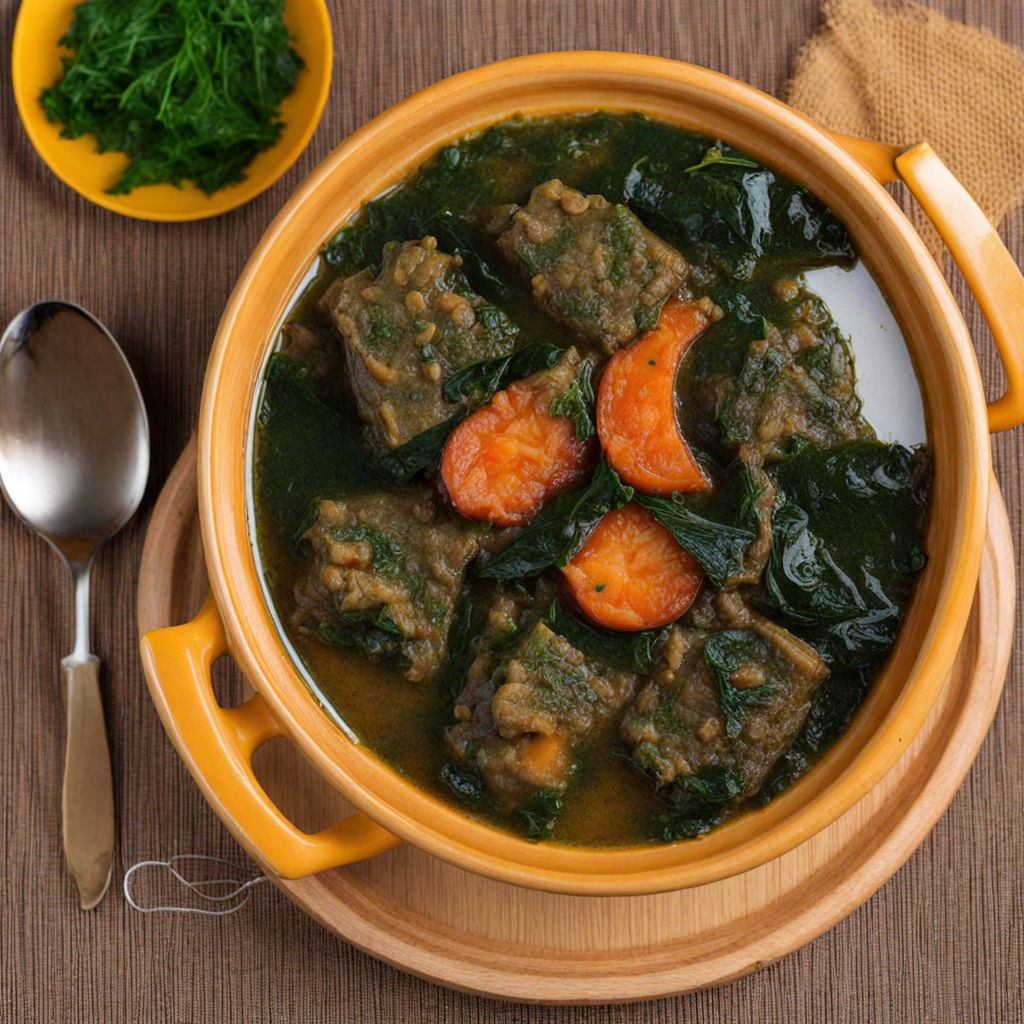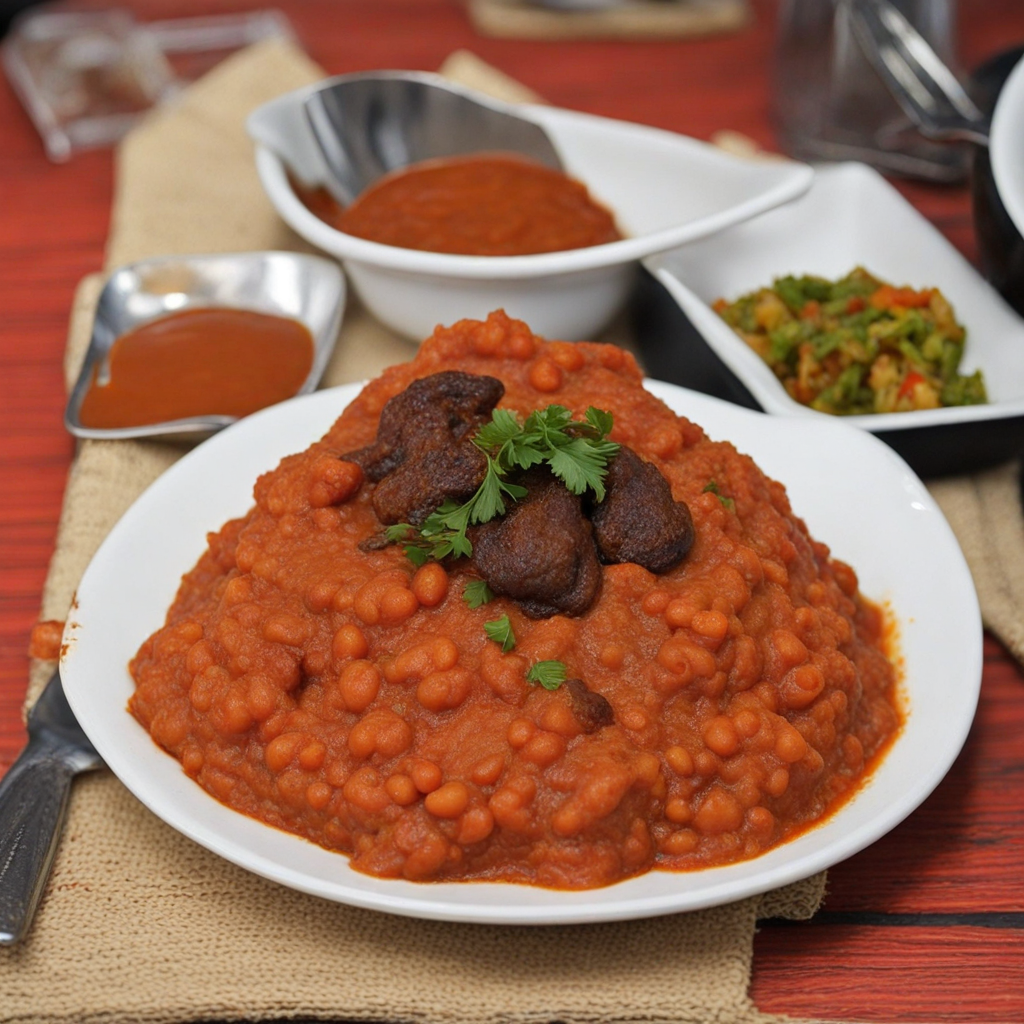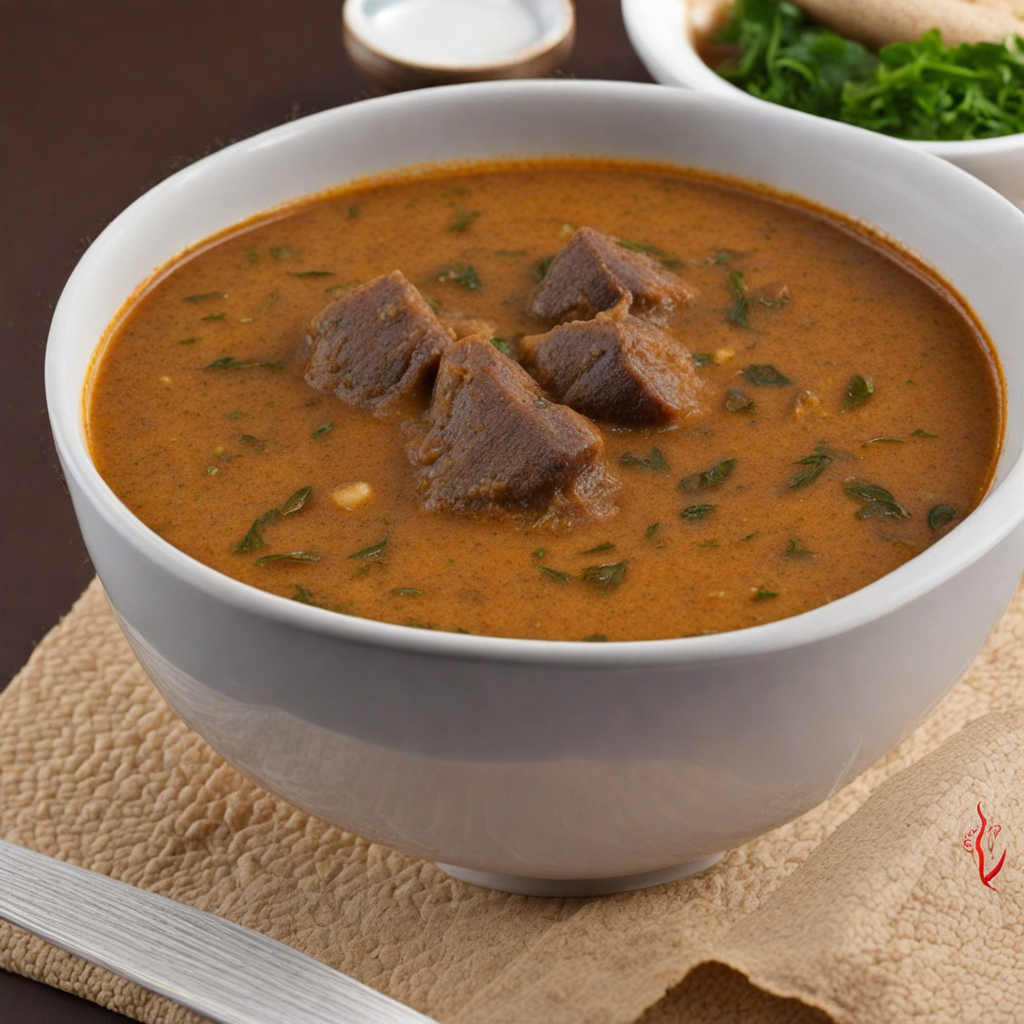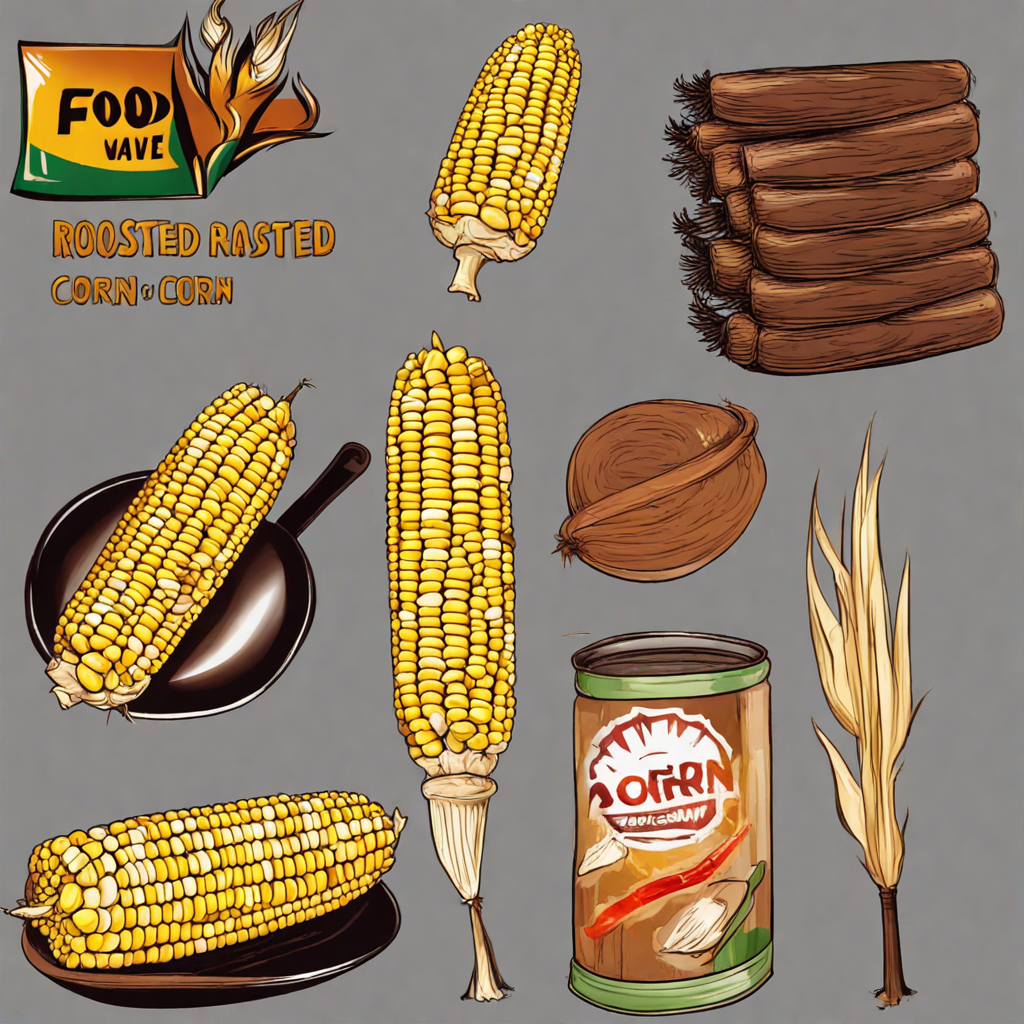Kilishi
Kilishi is a traditional Nigerian snack that embodies the rich culinary heritage of the northern region of the country. It is essentially a spiced, dried meat, usually made from beef or goat, marinated in a blend of local spices, and then sun-dried or smoked to achieve a chewy texture. The marinade often includes ground peanuts, chili pepper, ginger, garlic, and a variety of other spices, which contribute to its distinctive flavor profile that is both savory and slightly spicy. The preparation process not only enhances the meat's natural flavors but also preserves it, making Kilishi a popular choice for those seeking a portable and long-lasting snack. The taste of Kilishi is a delightful fusion of flavors that captivates the palate. Upon the first bite, you are greeted with a burst of umami from the rich, meaty texture, followed by the nutty notes from the ground peanuts that are often incorporated into the marinade. The heat from the chili peppers provides a gentle kick, while the ginger and garlic add warmth and depth. This combination creates a complex flavor experience that is both satisfying and addictive, making it hard to resist reaching for more. The chewy texture of the dried meat allows you to savor each bite, making it a perfect accompaniment to cold drinks or a quick snack on the go. Kilishi is not just a snack; it represents a cultural experience that connects people through shared flavors and traditions. Often enjoyed during festive occasions, gatherings, or as street food, it has become an emblem of Nigerian hospitality and creativity in the kitchen. Its popularity has transcended borders, with many people outside Nigeria discovering its unique taste and incorporating it into their own culinary adventures. Whether you're a seasoned food enthusiast or a curious newcomer, Kilishi offers an exciting opportunity to explore the vibrant flavors of Nigerian cuisine and indulge in a snack that is both authentic and delicious.
How It Became This Dish
The History of Kilishi: A Nigerian Culinary Treasure #### Origins Kilishi, a beloved delicacy hailing from Nigeria, is a spiced, dried meat snack that has captured the hearts and palates of many, both within the country and beyond its borders. Its origins can be traced back to the northern regions of Nigeria, where the Hausa people first crafted this unique dish. The Hausa, one of the largest ethnic groups in West Africa, were historically nomadic pastoralists who relied heavily on livestock for sustenance. As a result, meat has always been a central component of their diet. The process of making Kilishi is thought to have developed as a practical solution to preserve meat in the hot, arid climate of northern Nigeria. Drying and spicing the meat not only extended its shelf life but also infused it with flavors that made it irresistible. Traditionally, Kilishi was made from beef, but variations using goat and sheep meat exist, reflecting the availability of different types of livestock. #### Cultural Significance Kilishi is more than just a snack; it is a cultural artifact that embodies the traditions, history, and social fabric of the Hausa people. It is often associated with communal gatherings, festivals, and celebrations. The process of making Kilishi can be communal, involving family members or neighbors who come together to prepare the meat. This collaboration fosters community bonds and reinforces social ties, making Kilishi a symbol of togetherness. In addition to its communal significance, Kilishi also plays a role in the trade and economy of northern Nigeria. It is a popular item in local markets, where vendors sell it to travelers, tourists, and locals alike. The trade of Kilishi has not only provided a source of income for many but has also contributed to the cultural exchange within Nigeria and with neighboring countries, as Kilishi is often enjoyed with various dips and accompaniments, showcasing the culinary diversity of the region. #### The Making of Kilishi: A Culinary Art The preparation of Kilishi is an art form that has been passed down through generations. The traditional method begins with selecting high-quality cuts of meat, typically from the thigh or other lean portions. The meat is sliced into thin strips, which allows for quicker drying and better absorption of flavors. This is crucial, as the flavor profile of Kilishi is one of its defining features. Once the meat is sliced, it is marinated in a blend of spices that varies from one cook to another. Common ingredients include ground pepper, ginger, garlic, and a blend of local spices known as "yaji" or "suya spice." The marinated strips are then laid out in the sun to dry, a process that can take several hours to a couple of days, depending on the climate. This sun-drying method not only preserves the meat but also enhances its flavor, resulting in a chewy, savory snack. In contemporary times, while traditional methods still prevail, the production of Kilishi has evolved. Commercial processors have emerged, using modern techniques such as dehydrators and vacuum sealers, which allow for quicker preparation and longer shelf life. Despite these advancements, many artisans remain committed to preserving the traditional methods, ensuring that the authentic taste of Kilishi endures. #### Evolution and Modern Popularity Over the decades, Kilishi has evolved from a regional delicacy to a national favorite, and its popularity has even spread internationally. The rise of globalization has played a significant role in this expansion, as the Nigerian diaspora has introduced Kilishi to new markets. Food lovers around the world have embraced this spicy, flavorful snack, leading to its availability in specialty stores and online platforms. In addition to its growth in popularity, Kilishi has seen creative adaptations. Innovative cooks have started to experiment with different meats, such as chicken and fish, as well as incorporating various spices and marinades to cater to diverse palates. This adaptability has further cemented Kilishi's place in the culinary landscape of Nigeria and beyond. The emergence of food festivals and fairs celebrating Nigerian cuisine has also contributed to Kilishi's renewed visibility. These events often feature Kilishi as a highlight, showcasing its cultural significance and culinary versatility. Chefs and food enthusiasts are eager to explore and share the rich flavors of Nigerian cuisine, with Kilishi serving as a perfect ambassador for the country's gastronomic heritage. #### Kilishi in the Global Context The global food scene is increasingly recognizing the importance of traditional foods, and Kilishi is no exception. As people become more interested in authentic, artisanal products, Kilishi has found its way into the spotlight. Its unique flavor, nutritional benefits, and cultural background resonate with consumers seeking diverse and meaningful culinary experiences. Moreover, the rise of social media has allowed food enthusiasts to share their Kilishi experiences, recipes, and preparation methods with a wider audience. Instagram and TikTok, in particular, have become platforms for showcasing the beauty and diversity of Nigerian cuisine, with Kilishi often featured in vibrant posts and videos. This visual storytelling not only promotes Kilishi but also highlights the rich cultural narratives intertwined with its preparation and consumption. #### Conclusion Kilishi stands as a testament to the resilience and creativity of the Hausa people and the broader Nigerian culture. From its humble beginnings as a means of preserving meat in the harsh climate of northern Nigeria to its status as a beloved snack enjoyed by people around the world, Kilishi embodies the spirit of community, tradition, and culinary innovation. As it continues to evolve, Kilishi remains a symbol of Nigeria's rich cultural heritage, inviting all to partake in its savory story. In a world increasingly focused on sustainability and the appreciation of diverse food cultures, Kilishi is not just a tasty treat; it is a narrative of survival, adaptation, and joy that transcends borders and brings people together through the universal language of food.
You may like
Discover local flavors from Nigeria


